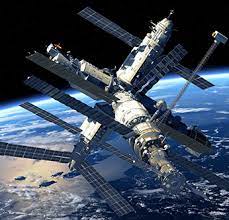The Fascinating World of Space Technology
Space technology has revolutionized our understanding of the universe and opened up new frontiers for exploration. From satellites and rovers to telescopes and spacecraft, the advancements in space technology have allowed us to probe the mysteries of outer space like never before.
One of the most significant contributions of space technology is the development of satellite technology. Satellites orbiting Earth provide crucial data for weather forecasting, communication, navigation, and scientific research. They enable global connectivity and have transformed how we communicate and gather information.
Exploration missions to other planets, such as Mars rovers like Curiosity and Perseverance, showcase the incredible capabilities of space technology. These robotic explorers collect valuable data about the Martian surface, atmosphere, and geology, paving the way for future human missions to the Red Planet.
Space telescopes like Hubble and James Webb have revolutionized our understanding of the cosmos by capturing stunning images of distant galaxies, stars, and nebulae. They have provided insights into the origins of the universe and helped astronomers discover new planets beyond our solar system.
Advancements in propulsion systems have made interplanetary travel more feasible than ever before. Technologies like ion thrusters and solar sails offer efficient ways to propel spacecraft over vast distances in space, making ambitious missions to distant worlds a reality.
The future of space technology holds even more promise with plans for lunar bases, asteroid mining, and manned missions to Mars on the horizon. As we continue to push the boundaries of what is possible in space exploration, innovation in space technology will play a crucial role in shaping humanity’s destiny among the stars.
Defining the Final Frontier: Understanding Space Technology
From Orbit to Home: The Impact of Space Technology on Daily Life
4. V
- What do space techs do?
- What do you mean by space technology?
- How is space technology used in everyday life?
- What are future space technologies?
What do space techs do?
Space techs, short for space technologists, play a vital role in the development and operation of technology used in space exploration. These professionals are responsible for designing, building, and testing spacecraft, satellites, rovers, telescopes, and other equipment that enable us to study and travel beyond Earth’s atmosphere. Space techs also work on propulsion systems, communication networks, navigation tools, and scientific instruments that are essential for missions to other planets, moons, and celestial bodies. Their expertise is crucial in pushing the boundaries of space exploration and advancing our understanding of the universe.
What do you mean by space technology?
Space technology refers to the application of scientific knowledge, engineering expertise, and innovative tools to explore and utilize outer space. It encompasses a wide range of technologies used for space exploration, satellite communication, Earth observation, planetary research, and space travel. Space technology enables us to launch satellites into orbit, send probes to distant planets, conduct experiments in microgravity environments, and unlock the mysteries of the universe. By harnessing the power of space technology, we can enhance our understanding of the cosmos, improve communication networks on Earth, monitor our planet’s environment, and pave the way for future human missions beyond our own planet.
How is space technology used in everyday life?
Space technology plays a vital role in our daily lives, often in ways we may not even realize. From weather forecasting and GPS navigation to communication networks and disaster management, the impact of space technology is ubiquitous. Satellites orbiting Earth provide real-time data for accurate weather predictions, helping us plan our daily activities with precision. GPS satellites enable us to navigate unfamiliar roads, locate nearby services, and track our fitness activities using smart devices. Communication satellites facilitate global connectivity, allowing us to make phone calls, access the internet, and stream media content seamlessly. In times of emergencies, space technology aids in disaster response by providing critical information for rescue operations and monitoring natural disasters from space. The integration of space technology into our everyday routines has made life more convenient, efficient, and secure.
What are future space technologies?
The future of space technology holds exciting prospects with advancements in various areas. From the development of reusable rockets and spacecraft to the utilization of artificial intelligence for autonomous space missions, the possibilities are vast. Future space technologies may include advanced propulsion systems for faster interplanetary travel, innovative habitats for sustainable living in space, and the exploration of new frontiers such as asteroid mining and deep-space habitats. These emerging technologies have the potential to revolutionize how we explore and utilize space, opening up new opportunities for scientific discovery and human expansion beyond Earth’s orbit.
Tags: communication networks, navigation tools, propulsion systems, rovers, satellites, scientific instruments, space exploration, space technologists, space technology, spacecraft, telescopes
